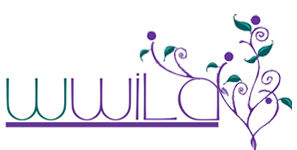Rape reports rising sharply in Queensland as clearance rate falls, prompting inquiry call
By Matt Wordsworth, ABC News Online
Reports of rape in Queensland have been rising sharply for the past six years, faster than the state’s growth in population, prompting a call for an inquiry into sexual assault.
Crime statistics published this week show Queensland police received 2,099 reports of rape and attempted rape in the 2017/18 financial year, an average of 40 per week.
The numbers represent a 60 per cent increase on those recorded in 2011/12.
Given the state’s population growth, the total number of offences usually grows — so to allow for better comparisons across the years, police statistics also show the rate per 100,000 people.
This too shows a dramatic rise in rape reports, going from 29 cases per 100,000 people in 2011/12 to 42 in the last financial year, the second highest rate on record.
Criminologist and head of Queensland University of Technology’s school of justice, Kerry Carrington, said no-one knew why the number was rising again and it was against the trend.
“Most serious types of violent crimes are reducing, but that’s definitely not the case with sexual assault,” Professor Carrington said.
“Crimes against women, crimes of domestic violence and sexual violence are showing an opposite pattern and we do not know why.
Sexual assault cases cleared by Queensland police
| Year | Percentage cleared |
|---|---|
| 2009/10 | 79 |
| 2010/11 | 78 |
| 2011/12 | 77 |
| 2012/13 | No data available |
| 2013/14 | 80 |
| 2014/15 | 81 |
| 2015/16 | 76 |
| 2016/17 | 72 |
Source: Annual Statistical Review
“There are two possible scenarios — one is there is an increased willingness to report, the other is that there is simply an increase in those types of offences.”
At the same time, Queensland police statistics showed they were solving fewer sexual assaults.
The clearance rate for rape and attempted rape was down to 72 per cent in the 2016/17 financial year — it was 81 per cent three years ago.
Reasons for police declaring a crime cleared include when a person is charged or when a complaint is withdrawn.
People working in rape crisis centres have also told the ABC demand for their support services has been increasing.
Queensland Sexual Assault Network’s Leona Berrie is calling for a commission of inquiry similar to the domestic violence inquiry chaired by Dame Quentin Bryce.
“Queensland doesn’t have any coherent policy around sexual violence so we would be calling on the Government to hold an inquiry, something like the Not Now, Not Ever report into how we eliminate sexual violence and how we ensure we are providing a higher quality standard so that everyone receives a good quality response,” Ms Berrie said.
Professor Carrington said sexual assault victims were less likely to report crimes to police and that the conviction rate was very low.
“Victims of sexual assaults don’t get justice in our justice system,” he said.
“Of all cases of sexual assaults that get reported, probably only one in five, one in four, proceed to a charge,” Professor Carrington said.
“After that probably only about one in four, or one in five, end up in a conviction, so you have an overall conviction rate of less than 5 per cent — now that’s looking at studies across Australian jurisdictions in the last 30 years or so.”
Ms Berrie said the poor conviction rate further reinforced the need for an inquiry.
“Where are things falling down? We’re not aware of any research that’s happening,” she said.
“An inquiry would allow us to find where are those sticking points and what can we practically do about it,” she said
Click Here for Article.


